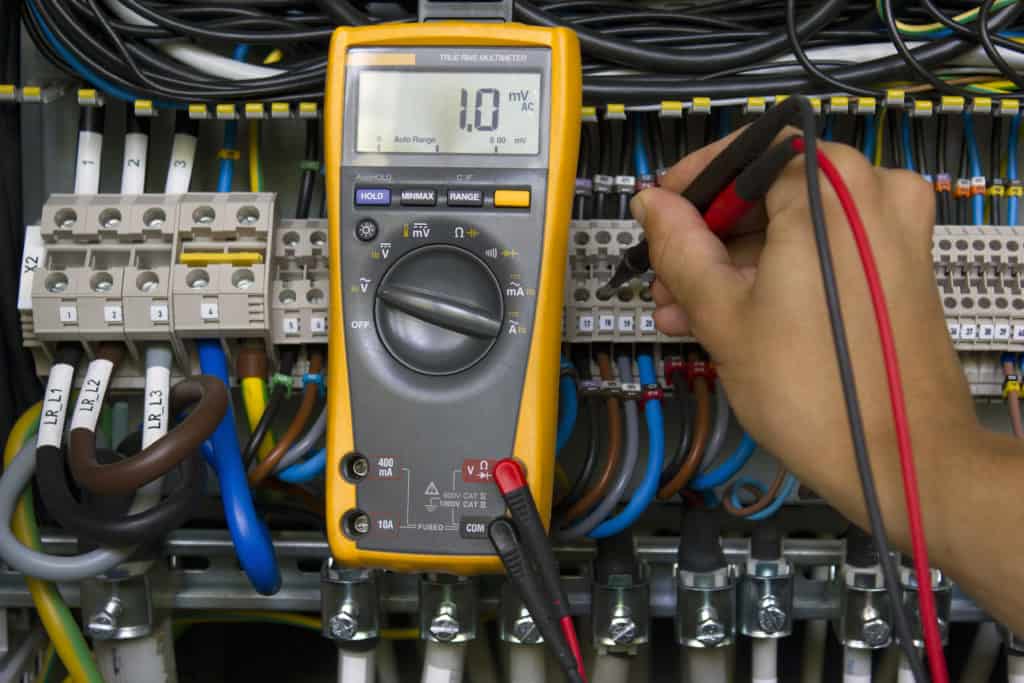Updated on December 13, 2019

First, let’s cover some basic tips that any successful electrical businesses must follow as they seek an effective launch.
To begin with, you may wish to be a solo electrical contractor. As you scale the company and bring on more customers and clients, however, it will be important to ensure you have the right team behind you. Seek qualified electricians who have completed vocational training and/or an apprenticeship, and who exhibit the skills needed to do good, reliable work.
Not only will you need to be properly certified as an electrician, but depending on where you’re located, you may also need to procure a local small business license. Check into the credentialing needs that are specific to electrical contractors in your area.
Even the savviest, most careful electrician can sometimes have an accident, or leave an error in their work. This opens up your company to big financial risk, but seeking the right insurance can mitigate that risk. In particular, look into general liability and Errors and Omission (E&O) policies.
Where will you set up shop? One option is to work from home, and to simply use your home phone number as the business line. This can often work out well, especially when you’re just getting started, but you’ll want to check local zoning codes to make sure you’re allowed to run a business out of your home. The alternative is to work with a commercial real estate agent to find a building or office space where you can establish your base of operations.
Hopefully, you’ll launch your business with a roster of existing clients who know and trust your work, and who will be happy to recommend you to their friends or colleagues. Nevertheless, you’ll need to make some investments in building your customer base, potentially attracting some clients from your local competitors. Digital technology will be crucial. Make sure you have a mobile-first website, social media profiles, a Google My Business account with up-to-date contact information, and citations in local business directories.
As you wonder how to grow your electrical business, one thing you’ll want to consider is the importance of online reviews. Today’s customers and clients will naturally want to do their due diligence, using Google and other search tools to ensure the electrical contractor they select is reputable. By amassing positive reviews on Facebook and Google, you can position yourself as the electrical business of choice among local homeowners and business owners. Don’t hesitate to ask for reviews upon the completion of your projects. This may be one of the most meaningful marketing tips you’ll find anywhere.
Another step to consider as you explore how to grow your business in electrical services: There’s more than one way to thrive as an independent electrician. Look for your niche, and offer services that appeal to a specific audience. For example, you may decide to provide your service offerings primarily to business owners, or you may seek a sub-specialty like wiring homes for smart home automation. The important thing is to be laser-focused on your service offering, and to use social media and other electrical marketing tools to make sure you’re connecting with the right demographic.
Another important topic to explore is the amount of money it will take for you to develop a business that can stand toe-to-toe with your competitors in the area. Indeed, an initial investment will be necessary in order for you to start a business with room to grow.
There’s no hard-and-fast number here, but you will naturally want to account for equipment, overhead, licenses, insurance, and more. It’s not uncommon for an electrical startup to require at least $5,000 to launch.
A related question: What kind of revenues can you expect from your offerings in the electrical field? As you set out to start and grow a business and to offer electrical services to your community, you will ultimately need to take a salary for yourself.
The data shows that the average salary for the owner of an electrician business is a little more than $95,000 annually. Be advised that this number can fluctuate both according to the size and competitiveness of your market as well as the years of experience you have. Indeed, a brand new business probably won’t be bringing in quite as many revenues with its initial offering.
As you consider going out on your own as an electrician-entrepreneur, one of the first things you’ll want to think about is getting licensed. To find out more, we invite you to browse licensed electrician directories by state. And, once you have your own license obtained, we’d encourage you to get your certification marks. This is a small but significant step as you seek to grow your electrical company.
